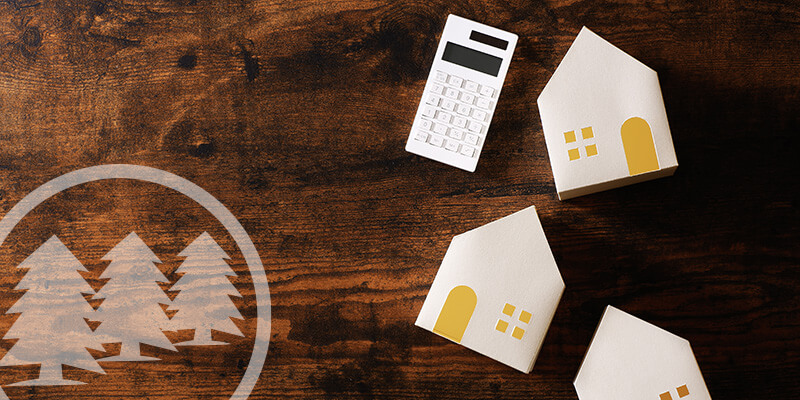A Homeowner’s Association (HOA) is a non-profit group comprised of residents who live in the same neighbourhood. The HOA manages shared spaces, amenities, and the general look of the community. Its role is to keep the area safe, well-maintained, and attractive for everyone. When purchasing a new home, many buyers focus on the property’s price, location, and potential for appreciation. However, one aspect that is often overlooked is the homeowners association fees. These fees vary widely depending on the residential community and amenities offered and are crucial in determining your home’s cost. Overlooking or underestimating homeowners association fees can lead to financial strain and frustration, turning what seems like a dream home into a costly mistake.
This blog will discuss the potential challenges associated with HOA fees, empowering prospective homebuyers to make informed decisions.
Homeowners Association Fees Explained

The term ‘homeowners association (HOA)’ fee refers to a monthly payment required from owners of certain residential properties, like condos or houses in specific neighbourhoods, to support the homeowners association (HOA). The HOA uses these fees to manage and improve the community’s properties and amenities. Condominium owners are usually subject to HOA fees, which can apply to some single-family home neighbourhoods. HOA fees are sometimes called ‘common charges’ or ‘maintenance fees’.
When you buy a property in these areas, you automatically become a member of the HOA. As a member, you must pay monthly dues, known as homeowners association fees. For condo owners, HOA fees generally cover the costs associated with maintaining shared spaces within the building, such as:
-
- Lobbies
- Patios
- Landscaping
- Swimming pools
- Elevators
The HOA fees cover water, sewage services, and trash collection. Sometimes, the HOA might request extra payments, known as special assessments, if the funds set aside for significant or unexpected repairs are insufficient. This could occur for major projects like elevator replacements or roof repairs. Charges may also apply to single-family homes in particular areas, especially row houses. This applies when common facilities, like a specialised sports court, a clubhouse, or local parks, need regular maintenance.
Understanding How HOA Fees Are Calculated

The calculation of HOA fees can differ widely between associations based on several key elements:
-
- Common Amenities and Services: HOA fees tend to be higher in communities that offer common amenities such as swimming pools, gyms, parks, and security services.
- Property Size and Type: The costs could be influenced by the size or style of your residence. Bigger homes or those needing more maintenance might face higher HOA fees.
- Reserve Funds: A part of the homeowners association fees is put aside for a reserve account. This money is used for major repairs or unexpected issues. The community’s age and the anticipated need for fixes in the years ahead can determine how much gets added to this reserve fund.
- Management Style: HOAs that handle their own affairs tend to have more affordable fees than those that employ professional organisations to manage them, owing to variations in operational expenditures.
- Common Amenities and Services: HOA fees tend to be higher in communities that offer common amenities such as swimming pools, gyms, parks, and security services.
Your HOA Fee Breakdown
The components covered by HOA fees can differ between neighbourhoods, but they include the following:
-
- Maintenance of Common Areas: The HOA fees are used to maintain the shared areas within the neighbourhood. This includes regularly tending to the lawns and gardens, removing snow to ensure safe passage during winter, and caring for common facilities like clubhouses, swimming pools, and recreational zones. Additionally, the fees cover the necessary repairs and upgrades to these shared spaces, guaranteeing their continued functionality and visual appeal.
- Utilities for Common Areas: The HOA fees may cover expenditures for street lighting to ensure roads and paths are safe after dark, irrigation systems to water the communal gardens and green zones, and central heating or air conditioning systems for common indoor areas.
- Insurance: A portion of the HOA fees is set aside to finance insurance policies that shield the community’s shared spaces and exterior structures. This insurance safeguards against the financial burden of unforeseen incidents, like natural calamities or mishaps. It supplements the homeowner’s insurance policies, which usually do not cover communal property.
- Reserve Fund: A portion of the HOA fees is directed into a reserve fund, which serves as a financial safety net for the community. This fund is important for addressing major future projects or unexpected repairs, such as replacing roofs, repaving roads, or upgrading ageing infrastructure. Maintaining a well-funded reserve ensures that the community can handle large-scale expenses without needing to levy special assessments or significantly increase fees.
- Maintenance of Common Areas: The HOA fees are used to maintain the shared areas within the neighbourhood. This includes regularly tending to the lawns and gardens, removing snow to ensure safe passage during winter, and caring for common facilities like clubhouses, swimming pools, and recreational zones. Additionally, the fees cover the necessary repairs and upgrades to these shared spaces, guaranteeing their continued functionality and visual appeal.
HOA Fee Myths Debunked

Homeowners association fees are often misunderstood, leading to confusion about their purpose and application. Understanding these misconceptions is important for homeowners to manage their financial obligations and maintain community standards effectively.
-
- Optional Payments: Some homeowners mistakenly believe HOA fees are optional or negotiable. However, these fees are mandatory for all community members and are legally enforceable. Failure to pay HOA fees can result in fines or legal action, including liens on the property, making it important for homeowners to understand their financial obligations to the association.
- Coverage of All Home Expenses: There is a common misconception that HOA fees cover all home maintenance expenses. These fees generally cover shared community services and amenities like landscaping, pool maintenance, and common area repairs. They do not usually cover individual homeowner expenses like home insurance, property taxes, or interior maintenance, which remain the homeowner’s responsibility.
- Fixed Fees: Many assume that once HOA fees are set, they remain constant. However, these fees can increase over time to account for rising operational costs, inflation, or unexpected expenses, such as major repairs or improvements. Homeowners should be prepared for potential fee adjustments to ensure the association can effectively maintain the community’s standards and services.
- Optional Payments: Some homeowners mistakenly believe HOA fees are optional or negotiable. However, these fees are mandatory for all community members and are legally enforceable. Failure to pay HOA fees can result in fines or legal action, including liens on the property, making it important for homeowners to understand their financial obligations to the association.
Budgeting for Your HOA Fees
To manage your HOA costs effectively, consider these strategies:
-
- Get Involved: By actively participating in HOA meetings, you can better understand how the community operates and contribute to decision-making that impacts fees. Involvement also provides an opportunity to voice concerns and suggest ways to optimise costs.
- Plan for Increases: It is necessary to account for potential increases in HOA fees over time. As costs for maintenance and community services rise, fees may be adjusted accordingly. Including these potential changes in your financial planning can help you avoid unexpected expenses and ensure you are prepared for any adjustments.
- Review the HOA’s Budget: Regularly reviewing the HOA’s budget can provide valuable insight into how your fees are being utilised. Understanding the allocation of funds for community maintenance, improvements, and reserve funds can help you gauge the association’s financial health and anticipate any future fee changes. Analysing the budget can also identify areas where costs could be reduced or better managed.
- Get Involved: By actively participating in HOA meetings, you can better understand how the community operates and contribute to decision-making that impacts fees. Involvement also provides an opportunity to voice concerns and suggest ways to optimise costs.
Late or Unpaid HOA Fees
Homeowners who neglect to pay their regular fees or any additional charges set by the homeowners association (HOA) may face consequences. The specific actions the HOA can take depend on the agreement between the organisation and the property owner. Certain contracts authorise the HOA to impose late payment penalties, pursue legal action, establish a claim on the property, or even initiate foreclosure proceedings to recover the outstanding debts.
Conclusion
Homeowners Association fees play an important role in communities managed by an HOA. Understanding the scope of these fees, how they are determined, and strategies for managing them allows homeowners to make informed choices and ensure their neighbourhood is well-kept and enjoyable. By clarifying these expenses, we aim to equip Canadian homeowners with the knowledge to navigate their HOA obligations confidently. It is important to carefully review the Covenants, Conditions, and Restrictions (CC&Rs) and fully understand the associated fees before making any commitments. While these fees represent an additional cost, they offer several benefits, such as maintaining the common areas, enhancing the neighbourhood’s aesthetics, and providing increased security. These advantages contribute to a higher quality of life and can help preserve or boost property values over time.
You May Also Read :
|
Know The Canada Mortgage Statement |
|
|
Guide To Townhouse Down Payment |
|
|
Understand Home Valuation |
|
|
Real Estate Investment in Property |
Frequently Asked Questions (FAQs)
Are HOA Fees Required in Canada?
Yes, you must pay HOA fees if you live in a community or condominium in Canada governed by a homeowners association (HOA) or a condominium corporation.
What is the highest HOA fee?
The highest HOA fees can vary significantly depending on the location, size, and amenities offered by the community. HOA fees can be particularly high in posh or luxury neighbourhoods, especially in major cities or exclusive resorts.
Are Homeowners Associations Allowed in Ontario?
Yes, Homeowners Associations (HOAs) are legal in Ontario. In Ontario, HOAs operate under different legal frameworks, including the Ontario Condominium Act for condominiums and the Common Elements Condominium Corporations (CECCs) for other types of property developments. These associations are established to manage and maintain shared community areas and amenities, ensuring the smooth operation of the community and the maintenance of common spaces.
Are there Homeowners Associations (HOAs) in Toronto?
In some neighbourhoods, joining a homeowners' association (HOA) is optional. This means individuals can choose whether they want to be part of the HOA or not. However, this is uncommon in Toronto and across Canada as a whole.
What province in Canada has the highest HOA?
British Columbia has the highest HOA (condo or strata) fees in Canada, especially in urban areas like Vancouver.



































